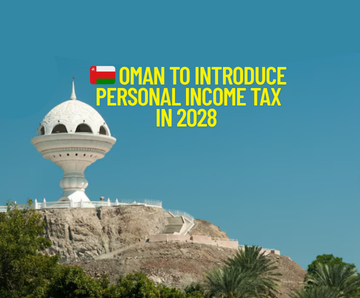The United Arab Emirates is poised to emerge as one of the fastest-growing economies in the Gulf region over the next two years, according to the latest World Economic Outlook released by the International Monetary Fund (IMF) on Tuesday. With the economy projected to grow by 5% in 2026, the UAE is expected to become the second-fastest growing economy among Gulf Cooperation Council (GCC) countries, trailing only Qatar.
Robust Growth Ahead for the UAE
The UAE’s GDP grew by 3.8% in 2023 and is projected to rise by 4% in 2025, with a significant acceleration to 5% in 2026. These projections reflect continued economic diversification, resilient non-oil sectors, and a stable macroeconomic environment. The country is expected to outperform the overall group of oil-exporting economies, which are projected to grow by 3.1% in 2026
The IMF also forecasts steady inflation in the UAE—around 2.1% in 2024 and 2% in 2025, indicating a balanced economic environment favorable for consumers and investors alike. Additionally, the UAE is projected to maintain a healthy current account balance, estimated at 6.6% of GDP in 2025 and 6.4% in 2026, further strengthening its economic fundamentals
Qatar leads the region with a projected 5.6% GDP growth in 2026, driven by strong performance in the gas sector and strategic development projects. Meanwhile, Saudi Arabia is also set to rebound from slower growth this year, largely due to oil production cuts.
How the GCC Stacks Up
2024 | 2025 | 2026 | CountryTariffs and Policy Uncertainty Cast a Shadow |
3.8 | 4 | 5 | UAE |
1.3 | 3 | 3.7 | Saudi Arabia |
2.4 | 2.4 | 5.6 | Qatar |
-2.8 | 1.9 | 3.1 | Kuwait |
1.7 | 2.3 | 3.6 | Oman |
Regional and Global Outlook
For the Middle East and North Africa (MENA) region, the IMF forecasts 2.6% growth in 2024 and 3.4% in 2025. The broader Middle East and Central Asia region is expected to see growth of 3.0% in 2024 and 3.5% in 2025 as geopolitical tensions ease and oil production gradually recovers.
However, the global outlook is more tempered. The IMF has lowered global economic growth projections due to rising geopolitical tensions and the re-emergence of tariff wars, particularly involving the United States. Global GDP is now expected to grow by just 2.8% in 2025 and 3% in 2026, down by 0.5% and 0.3%, respectively, from previous forecasts.
Tariffs and Policy Uncertainty Cast a Shadow
Global trade and investment are facing renewed pressure from policy shifts and trade disputes, especially those driven by the US. According to the IMF, tariffs and trade barriers are dampening investor confidence and weakening consumer demand, leading to downward revisions in growth for major economies.
- United States: Growth is projected to decline to 1.8% in 2025 and 1.7% in 2026, with weaker private consumption and increased policy uncertainty weighing on the economy.
- China: Growth forecasts have been lowered to 4% for both 2025 and 2026, impacted by slower reforms and global economic friction.
India: While still among the world’s fastest-growing major economies, India is expected to slow slightly to 6.2% in 2025 and 6.3% in 2026.
Outlook for UAE Businesses
The UAE’s strong economic forecast comes at an opportune time for businesses operating in or entering the country. With inflation under control, a solid current account, and projected GDP growth well above the global average, the UAE offers a favorable environment for investment, expansion, and innovation.
For sectors such as real estate, tourism, technology, and finance, these projections offer a signal of confidence. Moreover, the UAE’s continued push for economic diversification, regulatory improvements, and strategic investments in infrastructure and clean energy will likely sustain growth momentum beyond 2026.
Conclusion
The IMF’s optimistic outlook for the UAE reinforces its position as a regional economic powerhouse. While global uncertainties persist, the UAE’s consistent growth, low inflation, and strong fiscal management are likely to keep it on a stable and prosperous path, making it an increasingly attractive destination for global investors and businesses alike.




